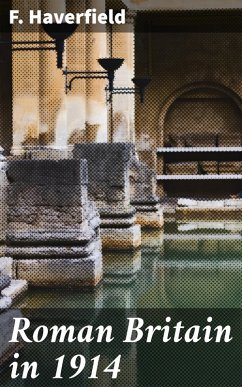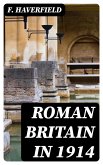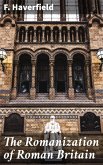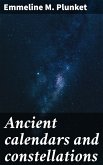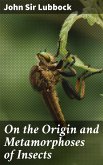In 'Roman Britain in 1914', F. Haverfield provides a comprehensive analysis of the Roman occupation of Britain in the context of the year 1914. Through a detailed examination of archaeological evidence and historical texts, Haverfield paints a vivid picture of Roman society and its impact on the British Isles. His literary style is scholarly and precise, making this book an invaluable resource for anyone interested in Roman history. As one of the leading authorities on Roman Britain, Haverfield's work is well-respected in academic circles. F. Haverfield, a prominent archaeologist and historian, uses his expertise to delve into the complexities of Roman Britain in this book. His meticulous research and deep understanding of the subject shine through in every chapter. It is evident that Haverfield's passion for Roman history drove him to produce this groundbreaking work, shedding new light on a pivotal period in British history. I highly recommend 'Roman Britain in 1914' to both scholars and enthusiasts of Roman history. Haverfield's insightful analysis and wealth of knowledge make this book a must-read for anyone seeking a deeper understanding of Roman Britain and its significance in 1914.
Dieser Download kann aus rechtlichen Gründen nur mit Rechnungsadresse in A, B, BG, CY, CZ, D, DK, EW, E, FIN, F, GR, H, IRL, I, LT, L, LR, M, NL, PL, P, R, S, SLO, SK ausgeliefert werden.

